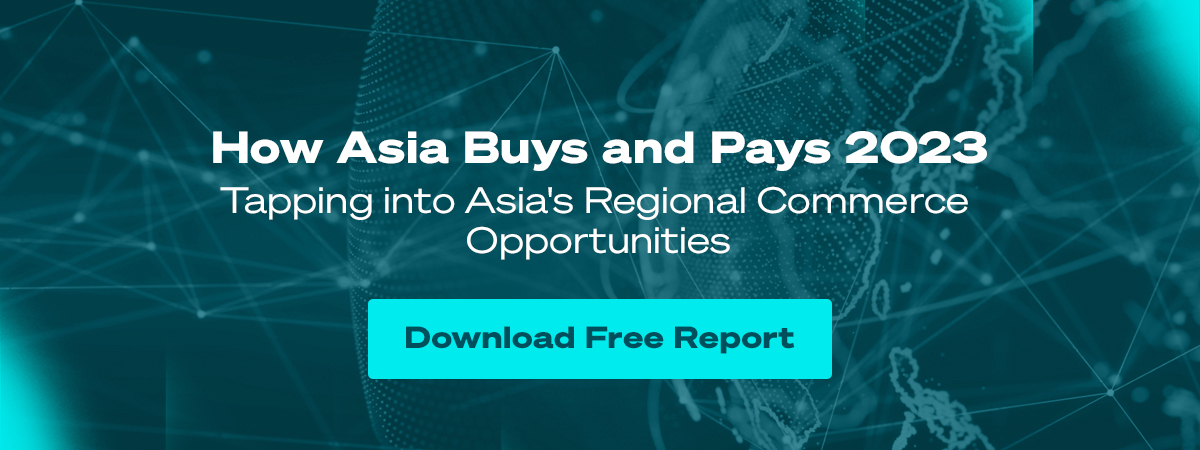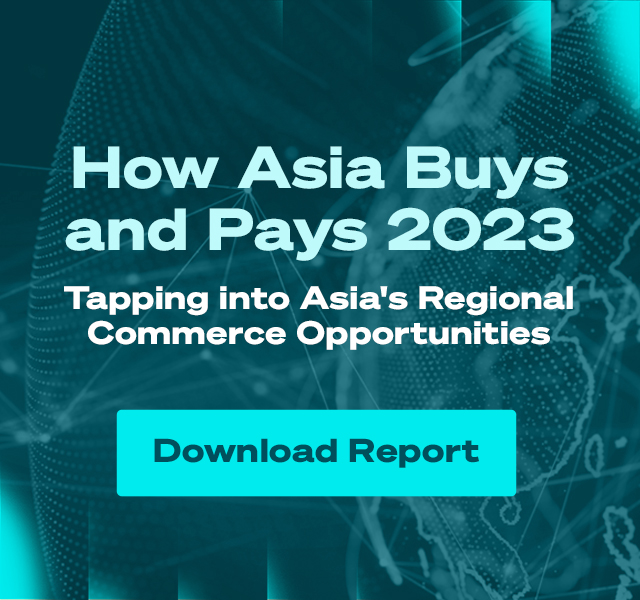
Payments Powerhouses: Transforming Transport Logistics Through Digital Payments with Thomas Beurthey
In this instalment of Payments Powerhouses, we talk about how digital payments have transformed transport logistics in Vietnam, and what's in store for the country's fintech space.


Thomas Beurthey, Founder & Managing Director of Dibee, spearheads the overall management of the company’s secure digital payment solution.
Prior to founding Dibee, Thomas was the CFO and Managing Director at Accor Services India. In 2009, he joined Edenred in Singapore as its Regional Business Development Director, where he helped acquire Barclay Voucher, the leading meals voucher company in Japan.
Thomas moved to Vietnam in 2015 to be Managing Director of Edenred’s Vietnam division. While working there, he crafted Ticket Fleet Pro as an innovative way to streamline the country’s fuel and fleet payment processes.
Founded in Ho Chi Minh City, Vietnam, in 2018, Dibee started out as an all-in-one digital payment solution to manage fuel expenses, reduce costs, and optimise fleet management for trucking companies. This record management solution has since expanded, giving companies the ability to build reputational assets and propel them towards expansion.
In the fifth episode of the Payments Powerhouses podcast, Thomas shares how Dibee’s streamlined logistics management process has benefited the broader Vietnamese economy.
Listen to the podcast below, or read on for the highlights of our conversation with Thomas.


Thomas, you've had a multifaceted career where you’ve worked across strategy, business development, and finance. And you've lived in China, India, Australia, Singapore and now Vietnam. Could you share more about your interesting background?
Thomas: I was born and raised in France. After graduating from business school, I went to India, where I met the founders of Accor Services and started my career. I took on different roles, such as creating employee benefits, loyalty programmes and solutions to improve productivity and employee motivation. Most of my experience was to start operations or develop acquisitions in new countries.
Could you give us some insight into the fuel and fleet management industry? How does the Dibee solution solve some of its pain points?
One of the key factors of success for Vietnam would be to remain competitive in logistics, where it is ranked high against other countries. In transport logistics, fuel represents 30% to 40% of the cost. If you don't control this, you are not in good shape.
Having done some research, I found that most of those expenses in Vietnam were transacted manually - either with cash or paper vouchers - and incidents of fraud were commonplace. So I thought we could help companies solve these headaches by simplifying the system and making it more transparent.
Given the increase in e-commerce, there must be a high demand in the fleet and logistics industry. How is Dibee positioned to help?
First, we digitise the process. Most of these ecommerce companies either rely on outsourcing or internal logistics, which means there is heavy data flow. You need to have a robust system of digital processes where we can exchange data quickly because people want things to be delivered very fast.
What Dibee does is help those companies first to digitalise the process, limit the fraud and the cash exchange, and improve the efficiency of the operations, so drivers don't need to come back to the office to get the cash or do the reconciliation with paper vouchers. Today, many banks are still providing working capital based on the old style of credit rating. By providing reliable data on company expenses, we can help companies be in a better position to source financing solutions.
What was it like before a solution like Dibee came along, and how is it now?
I once saw an accountant come to the gas station to sign vouchers to pay for the fuel. Sometimes, drivers come to the office and collect cash when they need to drive from Ho Chi Minh City to Hanoi. They need to collect cash to pay tolls, fuel and food for an entire week. Today with the Dibee system, they don't need to return to the office just to receive new job orders. They can receive electronic cash disbursements via the Dibee mobile application to pay for the fuel and travelling expenses.
Drivers are still low-paid, and they sometimes take out some of the cash rather than filling the tank, although I see this now changing. What we tried to change with our services is to put more transparency measures in place.
Since we give companies a tool to control and measure consumption, there’s also an opportunity there to share savings. And so, companies have also changed their compensation policy by putting some objective of behaviour or consumption. Since it can be measured, they could give part of the savings as a variable pay to the drivers. So it's much more transparent. It has also improved the relationship between the drivers, fleet managers, and admin teams.
How is Dibee contributing to Vietnam’s digital transformation?
Dibee fits in the market of transport logistics and supply chain. So this is a vital element of the growth of Vietnam. And it's also a key element that previously was not digitised. Dibee is not only going to go for fuel, but we're going to address other things B2B companies need for payments and services. We will target areas of the SME market still untapped by digital transformation.
Is Vietnam increasingly choosing digital payments over cash?
Definitely, and especially in the last two years. Some strong players are coming up in the payments space. The government’s goal is to have 80% of the Vietnamese population using a digital wallet in the next ten years.
Many obstacles can come from the regulations because it's moving very fast, and companies have to adapt. So it's not always easy to progress at the same pace. Then you need to have players who have a sustainable business model. Today, because Vietnam is very attractive, many companies invest massively and burn a lot of cash, which can be an issue later.
With digital payments becoming more mainstream, how will other segments of fintech in Vietnam become more defined?
Digital payments lead the way in fintech, followed by peer-to-peer lending. The rest are all the ancillary services around digital payments. So now, you can see more companies offering BNPL (Buy Now Pay Later) services, e-wallets, and insurance becoming more common through digitalisation.
As a founder, what would you say to others who would like to start their own company?
I've many years of experience in starting new companies, but within large groups, so I was more of an intrapreneur. And that's a very different ballgame from starting your own company. There is much more at stake, and the risks are different. You need to make sure that you have solid foundations for that.
In the beginning, you need to have people who can multitask and work in a startup environment. That's not easy to find, because good people usually start their own companies. Once you have this skill set, it’s also about personality, integrity, trust, and dynamism. When you're a startup, you don't want to have people who just come for a job, but people who want to join you on your journey and believe strongly in you and your product.
Once I've done my research and the preliminary work is ready, the thing I’ve always wanted is to create a team that will go along with my vision and create a culture. When I started companies in different countries, the thing to do was adjust and adapt to the culture gap with very different perspectives. I could not achieve anything without my team. And that's what is very important - how to empower your team, motivate them and establish strong values. That will be the backbone of your future.
. . .
Payments Powerhouses is a monthly editorial series interviewing the movers and shakers of the payments and wider fintech industry in Southeast Asia and beyond. If you’d like to be featured on Payments Powerhouses, reach out to us here.

